Suchergebnisse
Network material ecology for hospitals
The use of sustainable building materials is a key issue for sustainable development of the building sector. Emission free indoor air, minimized embodied energy of construction materials and health risk for construction workers are three main aspects. Between five hospital operators in Austria, Germany and Switzerland a practical exchange of experience focused on material ecology will be initiated and moderated.
Bio-based substitution of fossil raw materials and products
To support the bio-based substitution of fossil raw materials and products, the fossil material flows in Austria for the reference year 2015 were collected and analysed. Furthermore, a broad bio-based technology research was part of the present study.
IEA Working Party on Fossil Fuels (WPFF)
The Working Party on Fossil Fuels (WPFF) is the advisory council for the IEA Committee on Energy Research and Technology (CERT) for the field of fossil fuels.
FTI-Roadmap Power-to-Gas für Österreich

Research of the technological and the systemic perspectives regarding the storage of electricity in the form of gaseous energy carriers as a possibility for long-term energy storage.
Schriftenreihe
50/2014
R. Tichler, J. Lindorfer, C. Friedl, G. Reiter, H. Steinmüller
Herausgeber: BMVIT
Deutsch, 105 Seiten
IEA Wind - Annual Report 2011
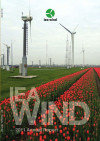
Herausgeber: International Energy Agency
Englisch, 189 Seiten
Downloads zur Publikation
Renewable Energy in Austria

This study presents, the market development of the technologies photovoltaics, solar thermal systems and heat pumps and the effects on political economy for the year 2007.
Englisch
IEA Bioenergy Task 42 Biorefineries : adding value to sustainable utilisation of biomass (2009)

This feature article provides an overview of the work of Task 42: Biorefineries: Co-Production of Fuels, Chemicals, Power and Materials from Biomass. It was prepared by the Task Leaders, Mr. Ed de Jong, Avantium Technologies BC and Mr. René van Ree, Wageningen University and Research Centre, the Netherlands.
Englisch
IEA-PVPS Annual Report 2013
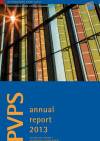
Herausgeber: IEA Photovoltaic Power Systems Programme (PVPS),
Englisch, 130 Seiten
Downloads zur Publikation
IEA-4E Benchmarking Bericht
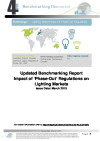
Auswirkungen der "schrittweisen Abschaffung" ineffizienter Leuchtprodukte (Überarbeitung)
Herausgeber: IEA 4E
Englisch, 53 Seiten
Downloads zur Publikation
IEA SHC Solar Update Vol. 63, May 2016
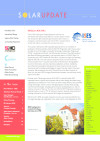
Schwerpunkte dieser Ausgabe sind Trends der Solarthermie 2016, Solarthermie im städtischen Umfeld, Kompakte thermische Speicher, Ergebnisse internationaler Zusammenarbeit, Solarenergie für industrielle Prozesse und die Zukunft solaren Kühlens.
Herausgeber: IEA Solar Heating & Cooling Programme
Englisch, 19 Seiten
Downloads zur Publikation
IEA Wind - Annual Report 2014
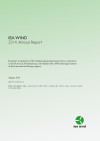
Herausgeber: PWT Communications, LLC für IEA Wind Energy Systems
Englisch, 200 Seiten
Downloads zur Publikation
Solar Cooling Handbook (2013)

A Guide to Solar Assisted Cooling and Dehumidification Processes (3. Überarbeitete Auflage)
H.-M. Henning, Mario Motta, Daniel Mugnier (EDs.)
Herausgeber: Ambra Verlag
Englisch, 368 Seiten
IEA-Wind Annual Report 2012
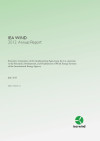
Herausgeber: International Energy Agency
Englisch, 172 Seiten
Downloads zur Publikation
IEA PVPS Annual Report 2015
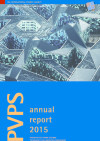
Herausgeber: IEA Photovoltaic Power Systems Programme (PVPS),
Englisch, 130 Seiten
Downloads zur Publikation
S-House
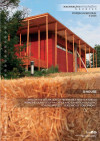
3/2005
Herausgeber: BMVIT
Englisch, 6 Seiten
Downloads zur Publikation
CPC-lightweight construction collector
On the basis of our relieable CPC-collector SOLARFOCUS S1 we develop the CPC-lightweight construction collector to get more material efficiency and maximum output of solar hightemperature energy.
New4Old - New energies for old buildings
The project "New4Old - New energy for old buildings - Promoting the integration of RES & RUE measures in historic buildings" aims to promote the integration of renewable energy and energy efficiency technologies into historic buildings, and to create a European-wide network of Renewable Energy Houses in the different Member States of the European Union.
Fibre composites with natural adhesive
Developing of suitable bonding agents, fibres and processing technologies for the production of form stable fibre composites made of natural components. Production of prototypes like boards and moulded parts. Material testing.
Reduction of Broke in Paper Production
Development of a measurement and control system that detects paper deformation during production. Thus, broke is reduced, significant savings in energy use are achieved, and the economic efficiency is well increased.
Balancing Energy Demand with Buildings
The project BED aimed to the development of new concepts for the operation and application of building automation systems in non residential buildings to reduce the maximal energy consumption and to ensure a stable and high-quality power supply.
